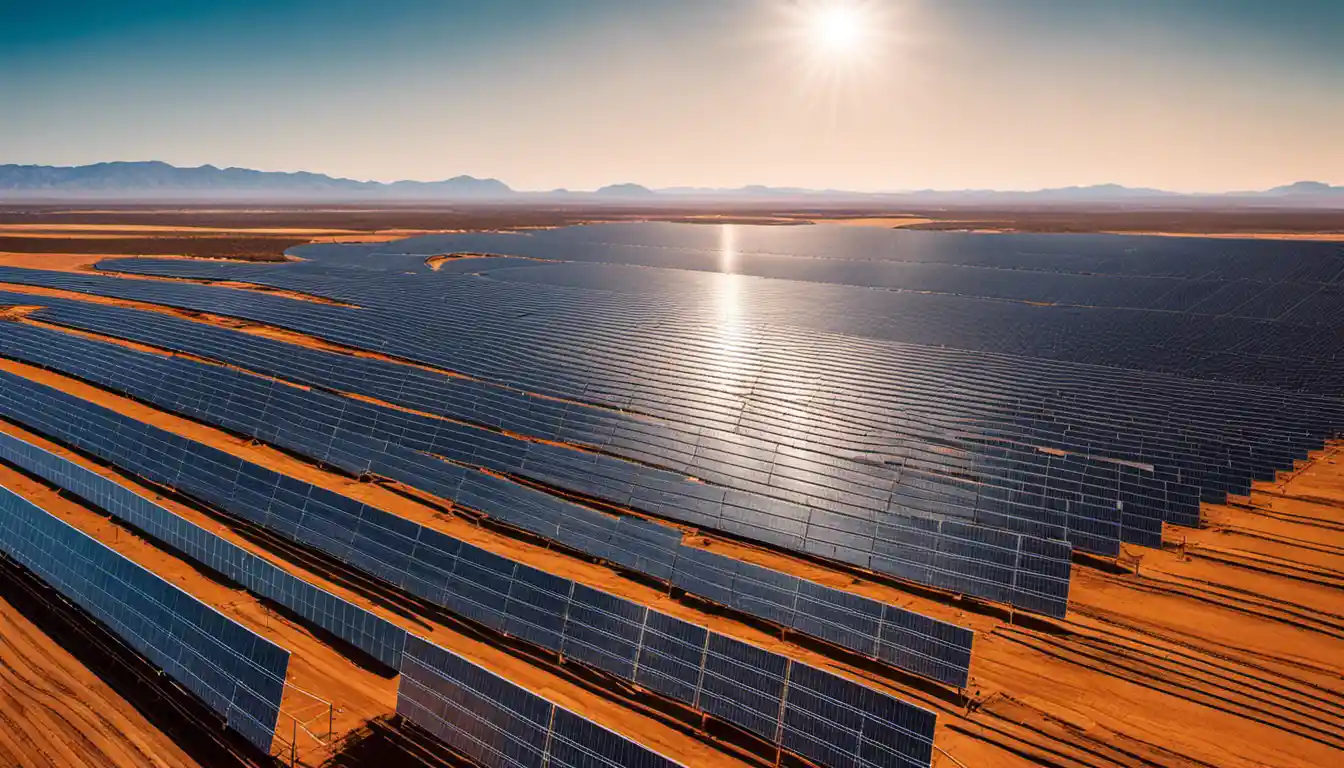Understanding the Concept of Solar Panel Efficiency
Solar panel efficiency refers to the ability of a panel to convert sunlight into usable electricity. Essentially, the higher the efficiency rating, the more sunlight the panel can transform into electricity for the same surface area, thus less space is needed for a high-performance solar energy system.
What Does Solar Panel Efficiency Mean?
The question, “What does solar panel efficiency mean?” is one that often puzzles those new to the solar arena. In short, solar panel efficiency is measured in terms of the ratio of output power (Watts) to the input light (Watt-peak). This concept is crucial because it reflects how well a solar panel can convert sunlight – the single most abundant source of energy – into a ready to use form of electricity.
Importance of Solar Panel Efficiency
For practical purposes, higher efficiency implies you’ll need fewer panels, less installation work, and less space to meet your home’s or business’s energy needs. If rooftop space is sparse or if you want to maximize your facility’s energy production, opting for high-efficiency solar panels might make more sense.
Elements Determining Solar Panel Efficiency
Solar panel efficiency is not determined in isolation; numerous factors come into play. These include the type of semiconductor material used, impurities in the materials, and panel degradation over time, among others.
Factors Affecting Conversion Efficiency
Temperature, for instance, is a significant factor that affects what is solar panel efficiency. As temperatures climb, the efficiency of solar panels decreases, conversely, efficiency increases in cooler temperatures.
Other factors include angle and orientation, amount of sunlight, and dust or debris on the panels.
Significance of Solar Panel Materials on Efficiency

The type of material used to make solar panels greatly impacts their efficiency. For example, monocrystalline silicon panels, known for their black hue and high-efficiency ratings, offer efficiency levels between 20% and 22%. Polycrystalline silicon, though cheaper, falls behind with an efficiency range between 15% and 18%.
Solar Performance Metrics
How we measure and evaluate solar panel performance is crucial in understanding what is solar panel efficiency.
Determining Conversion Efficiency
The standard metric used to denote solar panel efficiency is the conversion rate, typically expressed as a percentage. For instance, if the solar panel has an efficiency of 15%, it means that 15% of all sunlight hitting the panel is converted into electricity.
The Role of PERC Solar Cells in Enhancing Efficiency
Passive Emitter Rear Cell (PERC) technology is inserted at the back of solar cells, enhancing the panels’ ability to capture sunlight, thus improving efficiency. By incorporating light-scattering particles and mirrors, PERC technology can significantly increase a solar panel’s effective lifespan.
The Efficiency Trajectory: How do Solar Panels Perform Over Time?
The inevitable question with solar panels is – Do they maintain their efficiency over time? Firstly, it’s important to understand that solar panels don’t stop working after a certain period; their efficiency merely decreases at a slower rate.
The Lifespan of Solar Panel Efficiency

Most manufacturers guarantee 80% performance after 25 years; however, the actual lifespan of a solar panel is much longer, often reaching up to 40 years.
Other Aspects Impacting Solar Efficiency Over Time
This time factor also depends on maintenance and environmental conditions. For instance, a solar panel will degrade more quickly in hot climates than in cooler ones. Regular maintenance also helps to mitigate this issue.
How High-Efficiency Solar Panels are Space Economical
Given that high-efficiency solar panels generate more energy per square foot than typical panels, they are particularly advantageous for homeowners with limited roof space or large electricity bills. Additionally, these panels future-proof your roof against rising energy demands or technology advancements like electric cars or smart appliances that would need more electricity.
Future Trends and Advancements in Solar Panel Efficiency
Solar panel efficiency is marching forward, with newer technologies promising even more efficient solar solutions.
Technological Advancements Improving Solar Panel Efficiency
Emerging technologies like thin-film solar, multi-junction solar cells, and quantum dots offer exciting opportunities for enhancing solar panel efficiency.
How Will Future Technologies Impact Solar Panel Efficiency?

These technological advancements are poised to revolutionize photovoltaic efficiency. While at the experimental stage, some of these cutting-edge technologies have shown the potential to surpass the efficiency limit of current silicon-based solar cells.
The Bottom Line: Real Value of High-Efficiency Solar Panels
When it comes to the real-world impact of solar panel efficiency, saving on monthly electricity bills and making a positive environmental contribution are at the forefront.
Impact of Solar Panel Efficiency on Electricity Bills
High-efficiency solar panels produce more electricity and offset more of your energy costs. For instance, if you’re billed at 15 cents per kWh and your solar panels produce 6 kW per hour on a sunny day, that’s around 90 cents in savings per hour.
The Role of High-Efficiency Solar Panels in Reducing Building Emissions
Beyond cost-saving, higher efficiency solar panels mean fewer carbon emissions. An increased transition to solar energy directly corresponds to a reduction in greenhouse gas emissions.
Concluding Remarks: The Solar Equation
To sum it all up, understanding solar panel efficiency and how it’s calculated will play a crucial role in the kind of system you install. If you’re contemplating how efficient your solar panels will be, remember, the more efficient, the less space they take, and the more money you save. Solar panel efficiency isn’t merely a jargon-filled, scientific idea, but a ticket to sustainable freedom and environmental responsibility.
The future of solar panel efficiency looks bright, and it’s an exciting time to bask in the sunlight of sustainable energy. As I often say, when you go solar, you invest in a brighter and more sustainable future, making solar not just an affordable choice, but the right choice for our planet.



